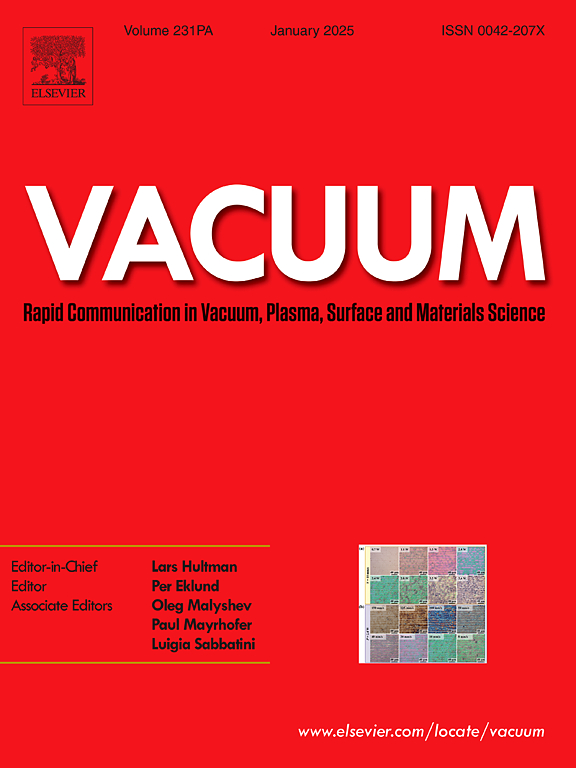Photocurrent and electrical properties of SiGe nanocrystals grown on insulator via solid-state dewetting of Ge/SOI for Photodetection and solar cells applications
IF 3.8
2区 材料科学
Q2 MATERIALS SCIENCE, MULTIDISCIPLINARY
引用次数: 0
Abstract
In this study, we present the photocurrent and electrical characterization of silicon-germanium nanocrystals (SiGe NCs) on an insulator (SiO2). The SiGe NCs were grown through a hybrid process combining solid-phase dewetting of an ultra-thin silicon-on-insulator (UT-SOI) film with the epitaxial deposition of a thin germanium layer using ultra-high vacuum molecular beam epitaxy (UHV-MBE). These SiGe NCs were successfully integrated into the insulator layer of a metal-insulator-semiconductor (MIS) structure for optoelectronic applications. The enhanced MIS structure, featuring integrated SiGe NCs, exhibited notable transport and optoelectric properties as determined by current-voltage and impedance spectroscopy. The results indicated that the MIS structure functions as a Schottky diode, demonstrating a high rectification ratio (RR) of approximately 1000 and a Schottky barrier height (ϕB) of 0.73 eV. Additionally, this structure displayed a broad spectral response in the visible range, with a significant photovoltaic effect. The equivalent circuit of the MIS structure was also derived for an AC signal using impedance spectroscopy. These findings offer a promising scalable method for the monolithic integration and efficient growth of SiGe nanocrystals, paving the way for advancements in self-powered photodetectors and ultrathin solar cells.
求助全文
约1分钟内获得全文
求助全文
来源期刊

Vacuum
工程技术-材料科学:综合
CiteScore
6.80
自引率
17.50%
发文量
0
审稿时长
34 days
期刊介绍:
Vacuum is an international rapid publications journal with a focus on short communication. All papers are peer-reviewed, with the review process for short communication geared towards very fast turnaround times. The journal also published full research papers, thematic issues and selected papers from leading conferences.
A report in Vacuum should represent a major advance in an area that involves a controlled environment at pressures of one atmosphere or below.
The scope of the journal includes:
1. Vacuum; original developments in vacuum pumping and instrumentation, vacuum measurement, vacuum gas dynamics, gas-surface interactions, surface treatment for UHV applications and low outgassing, vacuum melting, sintering, and vacuum metrology. Technology and solutions for large-scale facilities (e.g., particle accelerators and fusion devices). New instrumentation ( e.g., detectors and electron microscopes).
2. Plasma science; advances in PVD, CVD, plasma-assisted CVD, ion sources, deposition processes and analysis.
3. Surface science; surface engineering, surface chemistry, surface analysis, crystal growth, ion-surface interactions and etching, nanometer-scale processing, surface modification.
4. Materials science; novel functional or structural materials. Metals, ceramics, and polymers. Experiments, simulations, and modelling for understanding structure-property relationships. Thin films and coatings. Nanostructures and ion implantation.
 求助内容:
求助内容: 应助结果提醒方式:
应助结果提醒方式:


